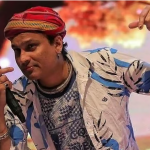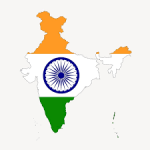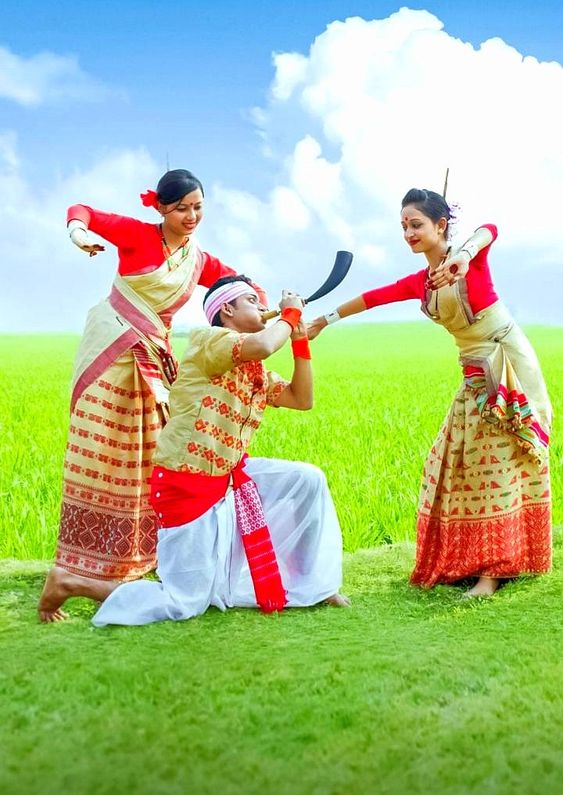Assam serves as a confluence of various cultures. The inhabitants of this captivating state are a blend of multiple ethnic groups, including Mongoloid, Indo-Burmese, Indo-Iranian, and Aryan. The culture of Assam is a vibrant and intricate mosaic formed through a lengthy process of assimilation among these diverse races. The local population is referred to as “Asomiya” (Assamese), which is also the official language of the state. Assam is home to numerous tribes, each distinguished by its own traditions, cultural practices, attire, and unique lifestyle.
Tribes such as Bodo, Kachari, Karbi, Miri, Mishimi, and Rabha coexist within Assam, with many possessing their own languages, although Assamese remains the dominant language. A significant portion of the Assamese population adheres to Vaishnavism, a sect of Hinduism that eschews idol worship in favor of “Naamkirtana,” a practice that involves chanting the praises of Lord Vishnu. Two key cultural and religious institutions that shape Assam’s cultural landscape are the “Satras,” which have been centers of religious and cultural activity for over 400 years, and the “Naamghar,” a place of worship. Villagers typically form associations based on their membership in a local Naamghar, and communities often consist of families from various distinct castes.
Gamucha
The “Gamucha” stands out as a prominent cultural emblem of the Assamese community and plays a vital role in nearly all socio-religious events. This cloth is regarded as an honorary item frequently utilized for bestowing honors in Assam.

Characterized as a white rectangular piece of handwoven cotton, the “Gamucha” features a red border on three sides and red woven designs on the fourth side, although other colors may also be incorporated. Its versatility allows it to serve multiple purposes: it can function as a towel, a waistcloth, or a loincloth. Bihu dancers often tie it around their heads, while it is also draped around the neck in prayer halls and thrown over the shoulder to denote social standing or respect. Known as “Bihuwaans,” these “Gamuchas” are presented during the Bihu festival as symbols of affection. Notably, the “Gamucha” is embraced by individuals from all religious and ethnic backgrounds, highlighting its universal significance.
Tamul Paan
“Tamul Paan,” which consists of areca nut and betel leaves, also known as Guapan, is regarded as a symbol of devotion, respect, and friendship.

Guests are presented with “Tamul Paan” in a traditional bell metal container called “Bota” as a gesture of honor. The act of chewing “Tamul Paan” is associated with a euphoric sensation and a sense of well-being. This practice is a fundamental aspect of all social and religious ceremonies among the Assamese people, rooted in an ancient tradition that has been upheld for generations.
Xorai
The “Xorai,” a revered traditional emblem of Assam, is a crafted bell-metal item that holds significant esteem among the Assamese people. These artifacts can be found in various forms, some featuring a cover while others do not. Hajo and Sarthebari stand out as the primary hubs for the traditional crafts of bell-metal and brass in the region.
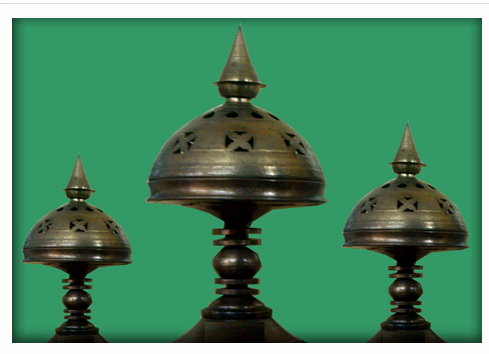
The “Xorai” serves multiple purposes; it is commonly used to present “Tamul Paan” as a gesture of hospitality and gratitude towards guests. Additionally, it functions as a vessel for offering Prasad, food, and other items at altars or “Naamghars,” which are places of worship. Beyond its practical uses, the “Xorai” also serves as an ornamental piece and is often bestowed as a gift to individuals of distinction during ceremonies of recognition.
Jaapi
The “Jaapi” is a traditional conical hat originating from Assam, crafted from tightly woven bamboo and/or cane, along with “Tokoupaat,” a type of large palm leaf. The term “Jaapi” is derived from “Jaap,” which refers to a bundle of Tokou leaves.

This hat is worn during the Bihu dance, serves as protection against the weather, is presented as a gesture of respect during ceremonies, and is often displayed as a decorative piece in homes, particularly near the entrance as a welcoming symbol. Simple “Jaapi” hats were utilized by farmers to shield themselves from the sun and rain while working in the fields, whereas elaborate “Jaapi” hats were worn as symbols of status by the Assamese royalty and nobility.
Assamese Jewellery
Assamese ornaments hold a significant place within the rich tapestry of Assamese culture, serving not only as adornments but also as symbols of heritage and identity. Predominantly crafted from gold, often referred to as “Kesha Xoon” or raw gold, these ornaments are renowned for their aesthetic appeal and the prestige they confer upon their wearers. Among the most celebrated pieces of traditional Assamese jewellery are intricately designed earrings such as Lokaparo, Keru, Thuriya, Jangphai, Long Keru, Sona, and Makori. Additionally, a variety of necklaces, including Golpata, Satsori, Joon biri, Bena, Gejera, Dholbiri, Doogdoogi, Biri Moni, Mukuta Moni, Poalmoni, Silikha Moni, and Magardana, showcase the craftsmanship and artistic flair of the region. The assortment of rings, featuring styles like Senpata, Horinsakua, Jethinejia, and Bakharpata, further exemplifies the diversity and creativity inherent in Assamese jewellery.
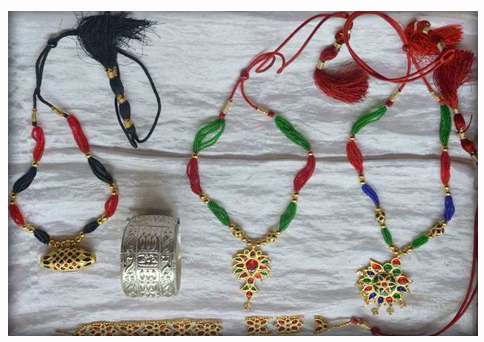
Typically handcrafted, these pieces often reflect the natural beauty of the local flora and fauna, with designs that, while simple, are enhanced by the inclusion of vibrant gemstones such as rubies or mina. The striking combination of black, red, and green hues on gold jewellery not only captivates the eye but also resonates with the traditional attire of various tribes and communities in the northeastern states, creating a harmonious blend of culture and artistry.
Mekhela Chador
Assam is renowned for its diverse silk varieties, with “Muga” being the most distinguished and esteemed, as it is the only natural golden silk found exclusively in this region.
In addition to “Muga,” there are two other notable types: “Paat,” which is characterized by its creamy, bright silver hue, and “Eri,” a silk variety commonly used for crafting warm winter clothing. Beyond Sualkuchi, the hub of the traditional silk industry, silk and silk garments featuring intricate woven designs are produced by rural households throughout the Brahmaputra Valley.
Furthermore, various ethnic and cultural groups in Assam create distinct cotton garments that showcase unique woven patterns and vibrant color combinations. Traditional Mekhela Chadors are crafted from Cotton, Muga, Paat Silk, or Eri Silk. However, in contemporary times, some budget-friendly Mekhela Chadors are produced using a mix of Cotton and Muga or Paat Silk combined with synthetic materials.

Mekhela Chador is a traditional attire of Assam, specifically designed for women. This ensemble consists of two primary fabric pieces that are elegantly draped around the body. The lower section, known as the Mekhela, extends from the waist down and is shaped like a wide cylinder, which is pleated to fit snugly around the waist and secured in place. The Chador, a long piece of fabric, is attached at one end to the upper part of the Mekhela, while the remainder is draped around the body and fastened to the blouse. Typically, the Mekhela Chador is complemented by a blouse that covers the upper body, and an underskirt with a drawstring is often included. Additionally, a Riha is traditionally worn as part of the Assamese bridal trousseau and during various indigenous cultural celebrations, such as Bihu.
Bagurumba
The Bodo community proudly showcases a variety of folk dances, with the Bagurumba dance standing out as the most captivating. This dance is characterized by its formation style, featuring slow movements and extended arms. A group of approximately twenty girls, adorned in vibrant traditional costumes, perform this dance accompanied by Bodo’s traditional musical instruments.

Visitors to Assam can witness this enchanting dance in the Bodo-populated regions of Kokrajhar, Bongaigaon, Nalbari, Darrang, and Sonitpur districts. It is typically performed during Baisagu, a festival celebrated by the Bodos around the time of Bishuba Sankranti in mid-April. The Bagurumba dance is often referred to as the “butterfly dance” due to its graceful movements that mimic the flight of birds and butterflies.


